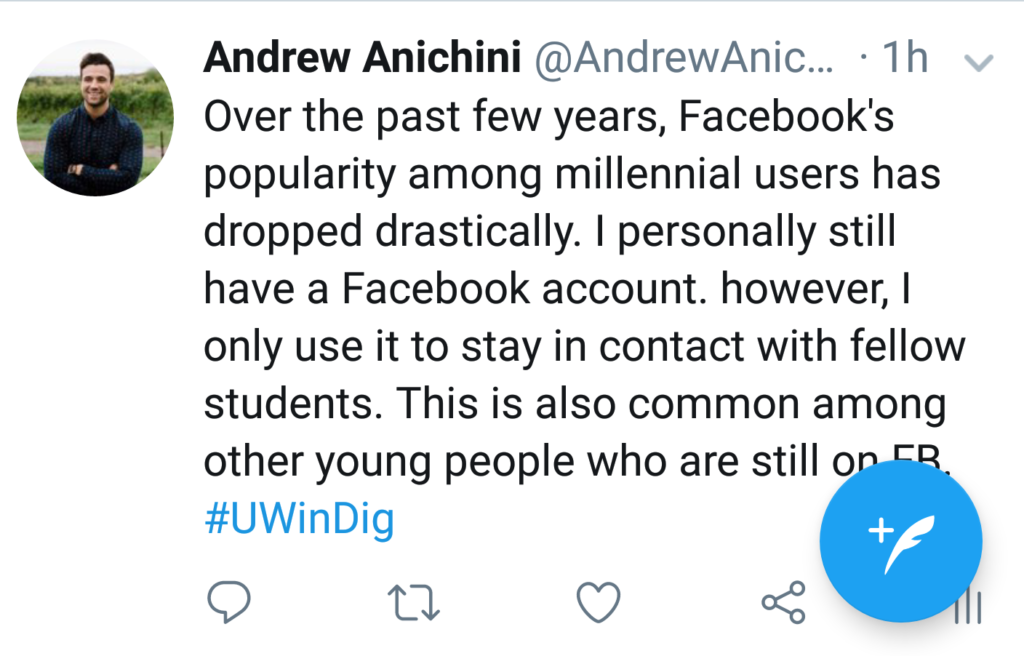
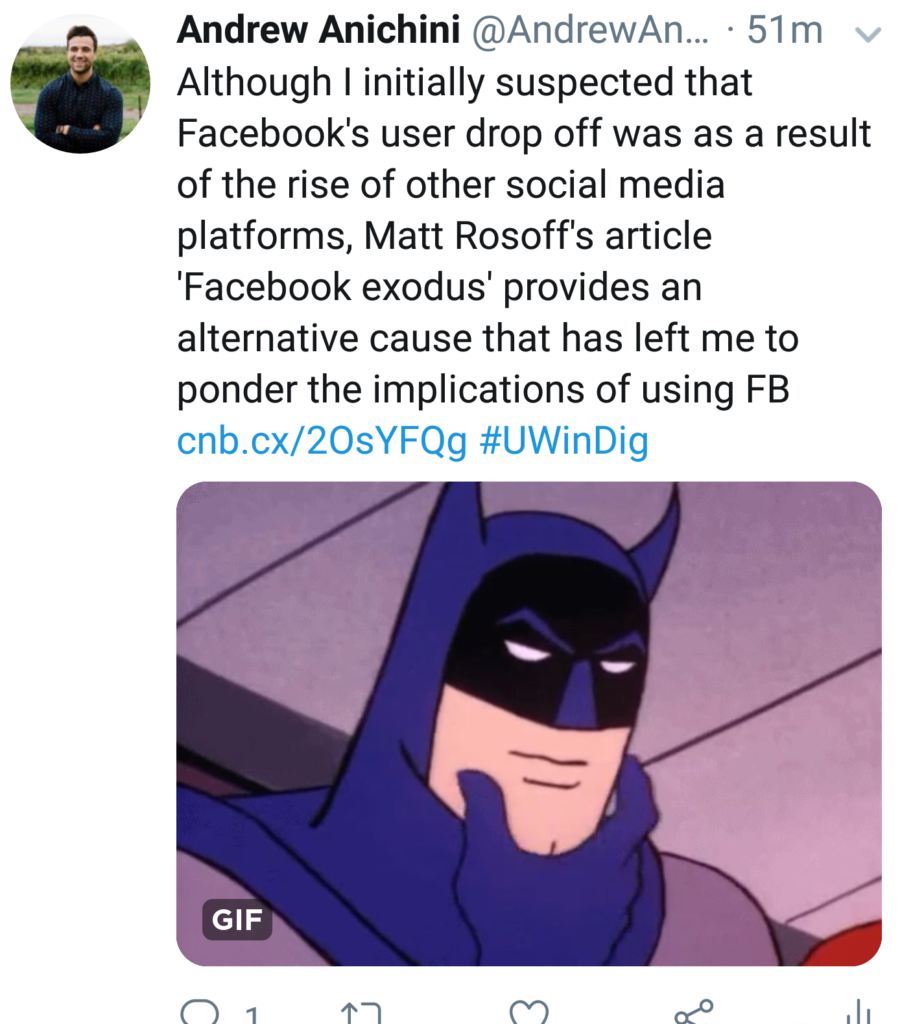
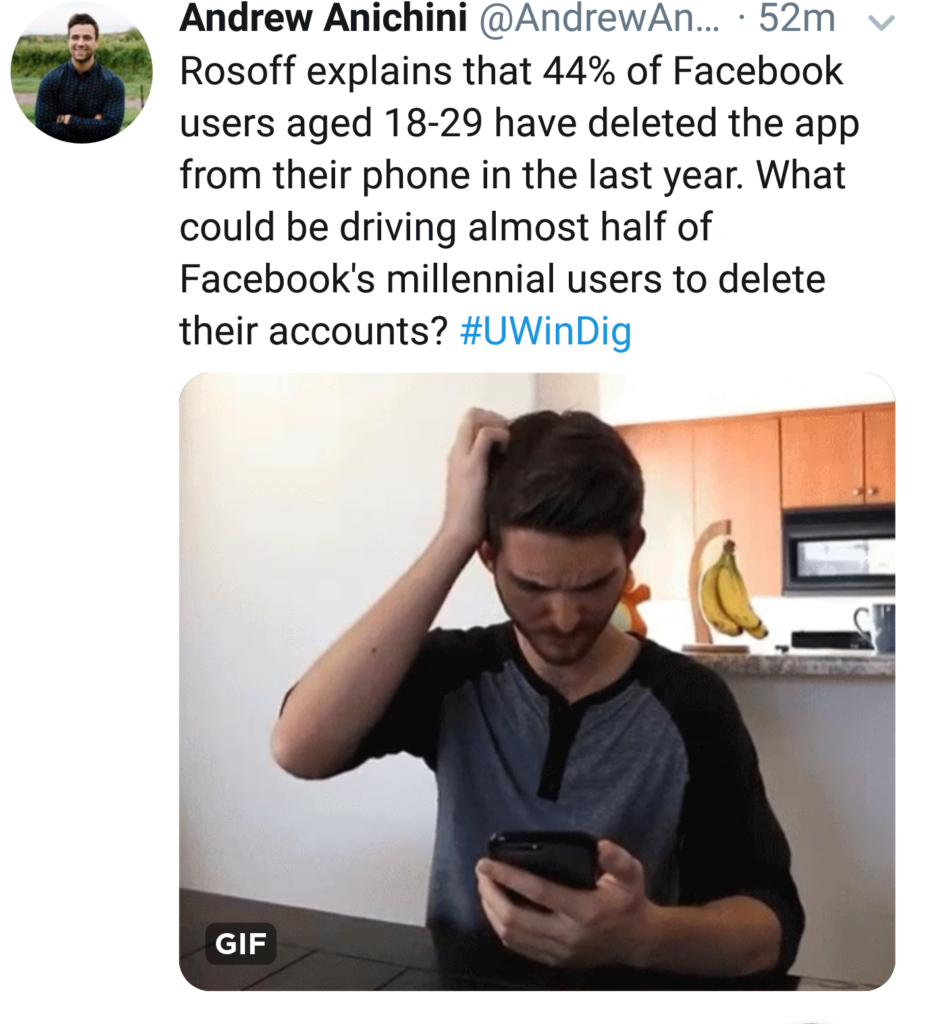
Looking back to 2008/2009, I thought Facebook was the ultimate tool for connecting with friends and finding new friends who didn’t go to my school. Seemingly everyone between the ages of 12 and 30 were using Facebook, and if you weren’t, you were missing out. Fast forward to today, and you’ll realize that Facebook no longer holds this same level of popularity among young social media users. Currently, I only really use Facebook in order to keep in contact with fellow students, as it is an easy way to communicate without having to exchange numbers. I rarely post anything. This seems to be the case among many of my other friends who are just barely hanging on to platform. According to Matt Rosoff’s Article, 44% of millennial users have decided to delete the Facebook app from their phone. This drop in user popularity goes beyond trends and new social media platforms.
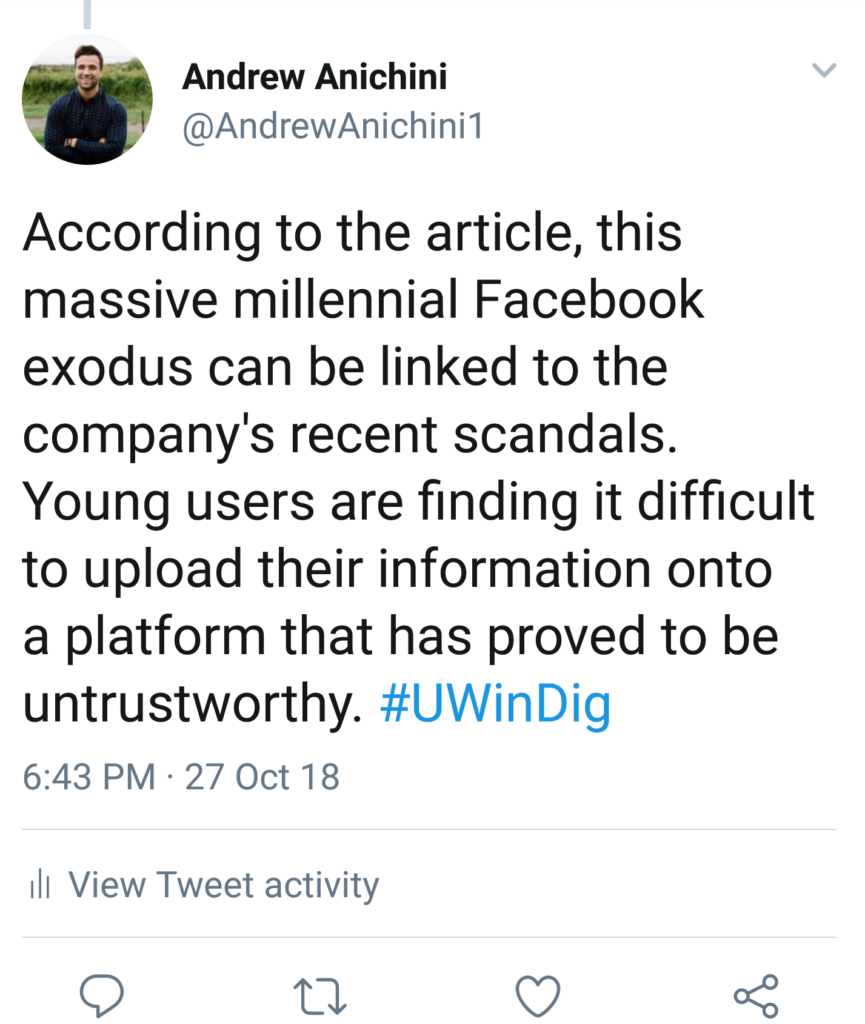
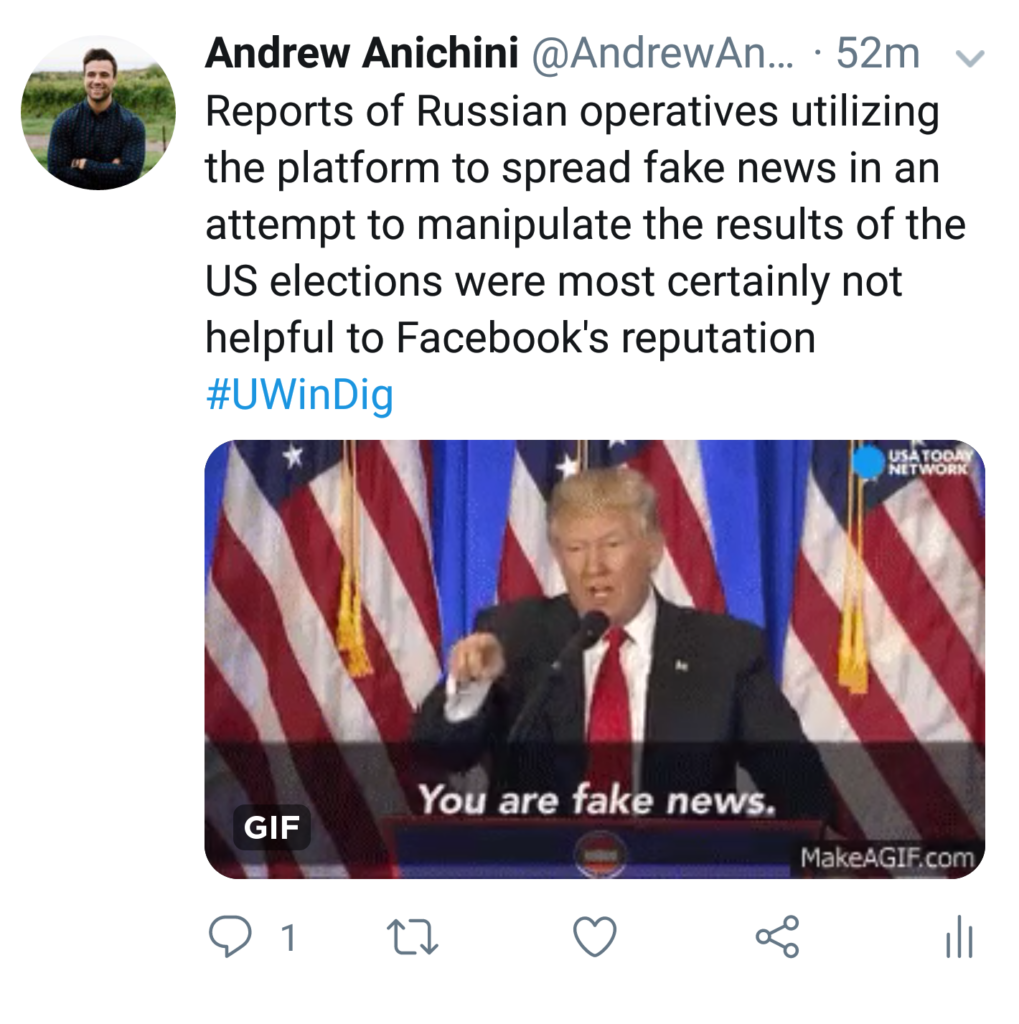
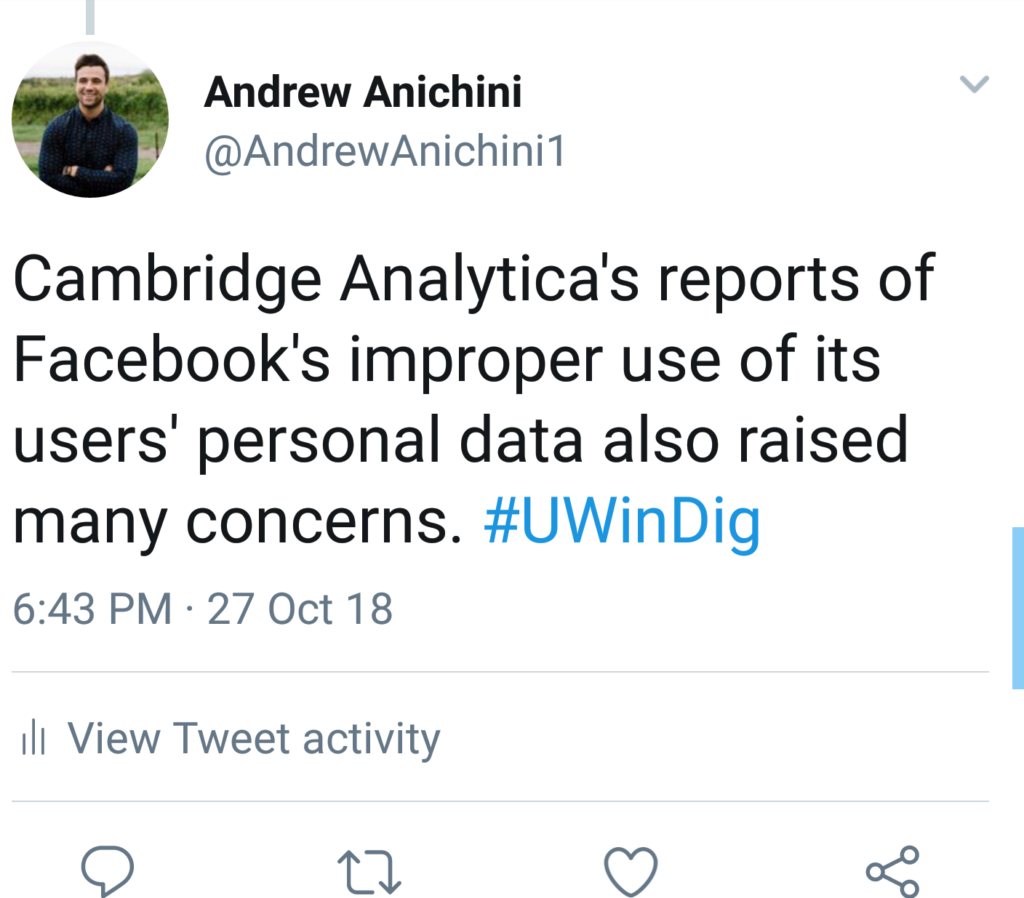
Rosoff explains that Facebook’s declining popularity among millennial users is closely linked to Facebook’s scandalous year. Facebook was found to be involved in two main scandals; allowing Russian operatives to utilize the platform spread fake news in an attempt to manipulate the 2016 US election, as well as instances of improperly using the personal data of its users. Obviously, these scandals have struck a nerve with millennial social media users, but why mainly them? What is causing these young people to jump ship?
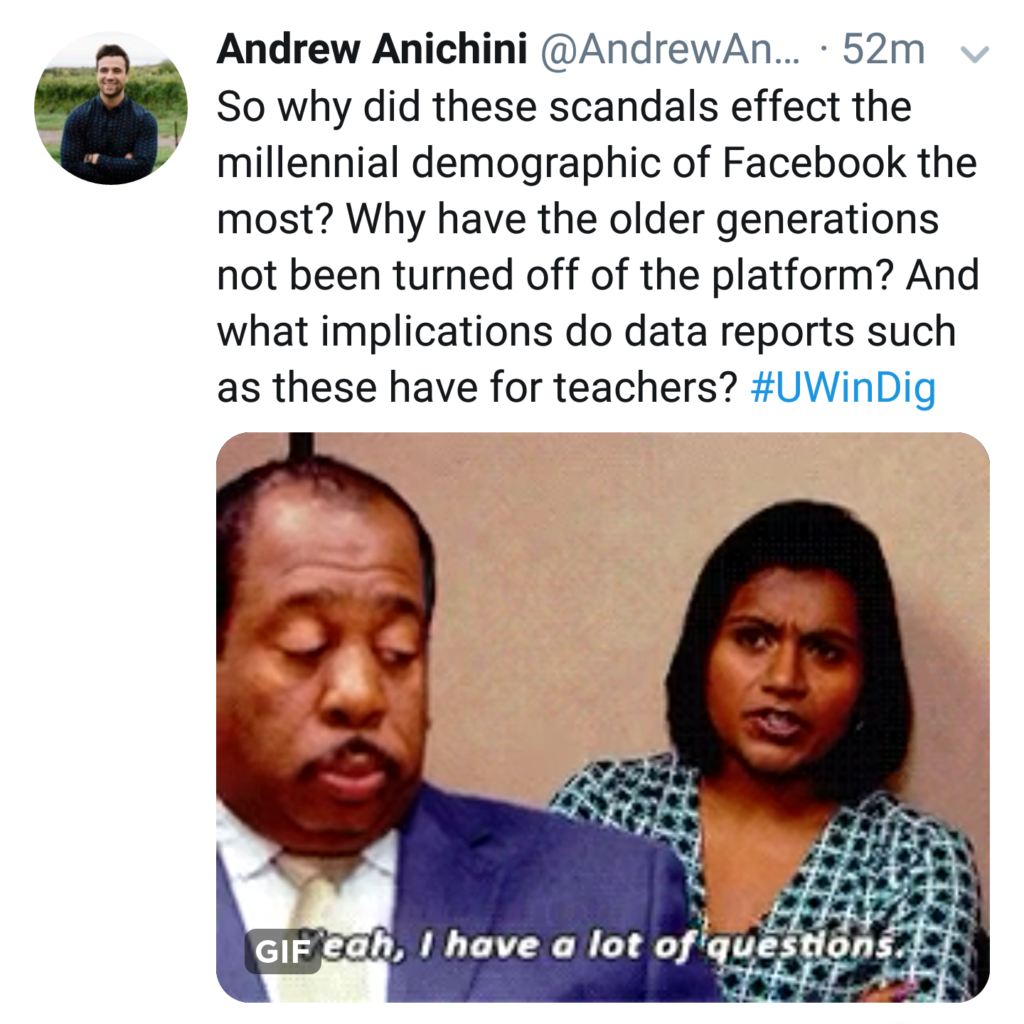
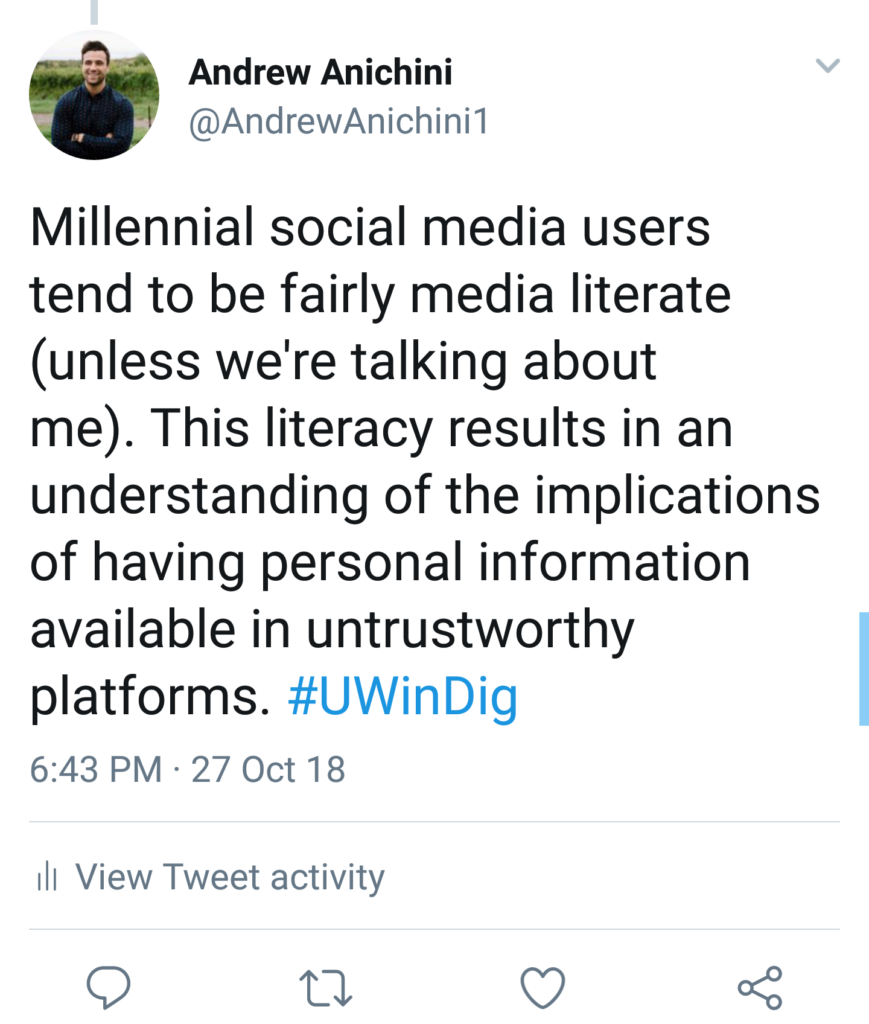
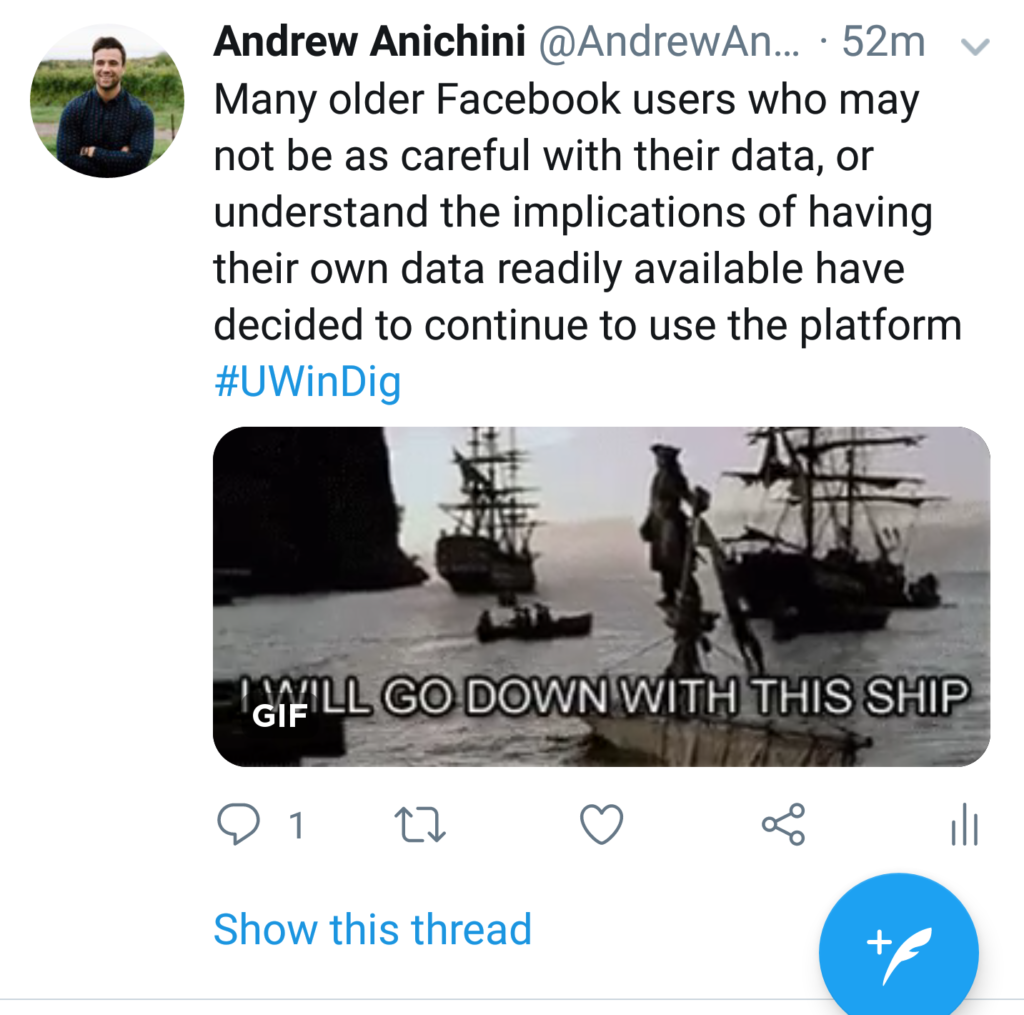
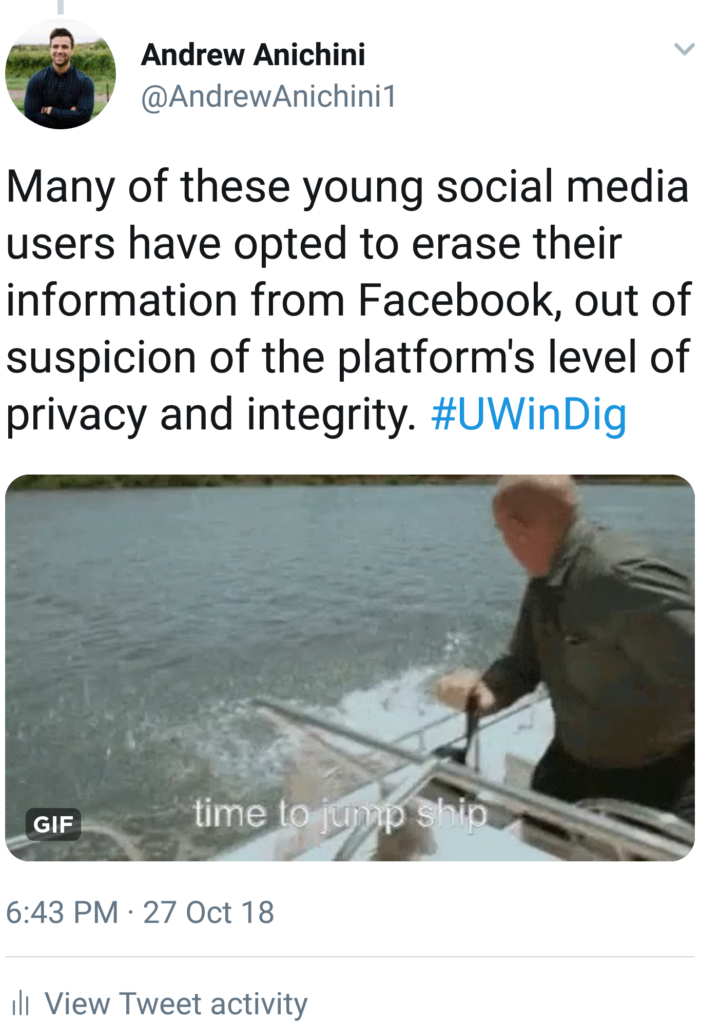
The largely media literate millennial social media using population has become less and less comfortable with sharing their personal information on a website such as Facebook. A solid understanding of the importance of protecting personal information has driven many young users away from Facebook, for an understandable fear that their information was not safe. Many people of older generations may not have this same media literacy, and are much less bothered by the scandals that Facebook has been involved in. This may explain why Facebook remains popular among older social media users. These older social media users may not have the necessary media literacy skills to decipher between ‘fake news’, shared with them in order to manipulate their opinions on certain matters. This skill may also be absent among the younger generation. Although they are highly digitally literate in their own ways, our youth may not always be able to look at everything they see online through a skeptical lens, as they should be.
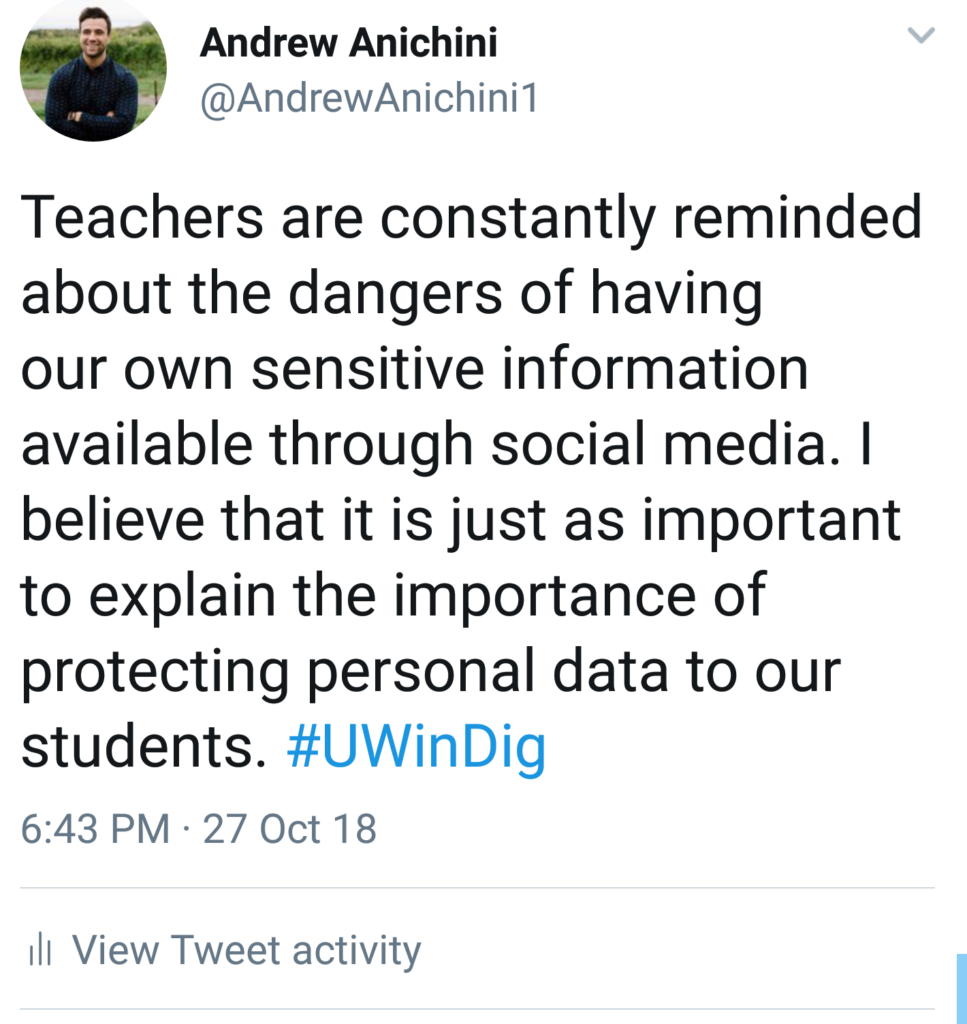
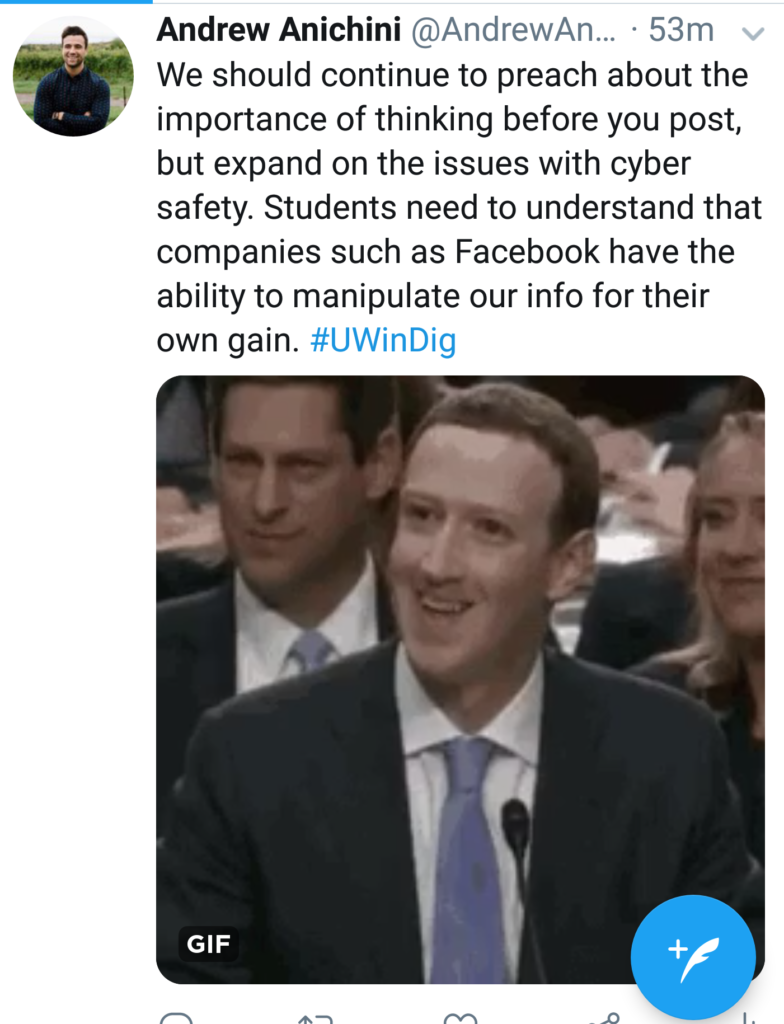
This article helps to reveal the real issue with posting online. As teachers, we are constantly reminded that anything we post on social media can be found by anyone. This is why it is so integral to be careful with what you’re posting on any particular platform. We have to now pass along some of the useful lessons of this article to our students. Our youth needs to understand the implications of having personal information on social media. Although we often think of ourselves as the manipulators of these various platforms, it is we who are being manipulated. We need to remind our students that personal information should stay private, because you never know how that information is being used.
This article definitely shifted my opinions on the matter of privacy and social media . Previously, I had never really been too weary about putting my information on social media. I had thought that anything that was marked as ‘private’ would stay as such, and that anything that I deemed ‘public’ could be shared. Unfortunately, platforms such as Facebook has proved on multiple occasions that they cannot be trusted with our private info, which will undoubtedly result in its continuing downfall. Personally, I will continue to use Facebook for communication purposes, however, I will stay away from putting up any personal information. I will bring the main ideas of this article into the classroom as I believe that it is integral that students understand that their information is not as safe as they may have initially thought.
#UWinDig
